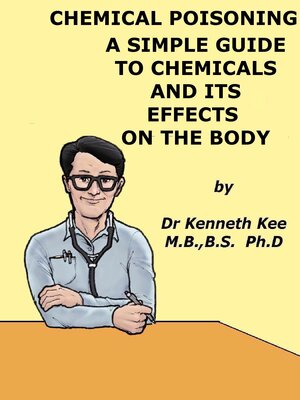
Sign up to save your library
With an OverDrive account, you can save your favorite libraries for at-a-glance information about availability. Find out more about OverDrive accounts.
Find this title in Libby, the library reading app by OverDrive.



Search for a digital library with this title
Title found at these libraries:
| Library Name | Distance |
|---|---|
| Loading... |
All substances are poisonous, there is none that is not a poison; the right dose differentiates a poison from a remedy.
— Philippus Aureolus Paracelsus
Things stand apart so far and differ, that
What's food for one is poison for another.
— Titus Lucretius
Science is dangerous.
There is no question but that poison gas, genetic engineering, and nuclear weapons and power stations are terrifying.
It may be that civilization is falling apart and the world we know is coming to an end.
__. Isaac Asimov
Technology, when misused, poisons air, soil, water and lives.
— New York Times
This was going to be a book on the Chemical Poisoning
It still is a book on the Chemical Poisoning and why a human needs to how to prevent Chemical poisoning.
I will try to add some descriptions in simple vernacular words and make it more fun to read.
Chemical poisoning:
Chemical poisoning is a condition in which the body is exposed to a potentially harmful chemical in an amount that causes symptoms, disease and/or damage to cells, organs and/or body systems.
Chemical poisoning can be intentional or unintentional.
Chemical poisoning is common and the second leading cause of injury and death in the U.S.
Chemicals that can cause chemical poisoning include toxins and toxicants.
Chemicals that are produced by living organisms are called toxins.
There are a wide variety of toxins, including biotoxins, which cause biotoxin poisoning.
Examples of biotoxins include snake venom, honey bee venom, and cyanotoxin which is produced by blue-green algae.
Toxicants are chemicals are synthetic or are natural substances that are not produced by a living organism.
There are a wide variety of toxicants, such as pesticides, chlorine, ammonia, pepper spray, and acetone.
Toxins and toxicants that cause chemical poisoning come in different forms, including gas, liquids, or solids, and are taken into the body in different ways.
These include inhaling and ingesting.
Toxins and toxicants affect the body in different ways.
Symptoms and complications vary widely depending on the specific chemical, its form, and the amount of exposure to the chemical.
Making a diagnosis of chemical poisoning begins with taking a thorough medical history, including symptoms, and completing a physical examination.
Diagnostic tests can vary depending on the type of chemical poisoning that is suspected.
Tests can help to pinpoint a specific toxin or toxicant and/or identify and monitor damage that the chemical poisoning has done to the body.
Tests may include blood tests, which can indicate some types of damage done to the body, such as damage to blood cells.
Blood tests may also be able to help pinpoint some chemical poisons, such as certain types of drugs taken in a drug overdose.
An ECG may be performed to test for cardiac arrhythmias or damage the chemical poisoning has done to the heart.
Arterial blood gasses can measure how a chemical poisoning is affecting the body's oxygen level and acid-base balance.
Imaging tests, such as X-ray, CT, and MRI, may also be done.
Test may also be performed in order to rule out or confirm other diseases that may appear similar to chemical poisoning, such as stroke or diabetes.
Symptoms
The types of symptoms and severity of complications of chemical poisoning differ greatly, depending on the type of chemical, the length of exposure, the person's age and medical history, and other factors.
Some chemicals, such as chlorine and phosgene, affect the respiratory...







